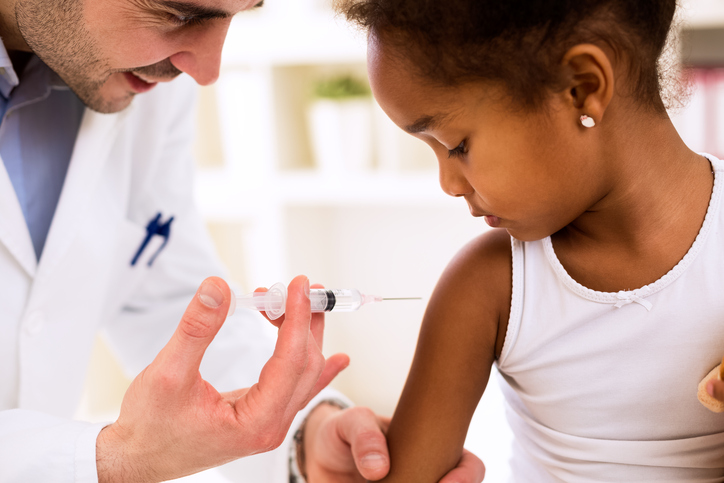August is National Immunization Awareness Month (NIAM). The annual observance highlights the importance of vaccination for people of all ages. NIAM was established to encourage people of all ages to make sure they are up to date on the vaccines recommended for them.
If you’re confused about the mixed messages out there regarding vaccinations, check out the common myths below.
The myth: The measles vaccine is linked to autism.
The facts
Even though the 1998 study linking vaccines to autism was retracted, the anti-vaccination campaign it launched ““ influenced by celebrities such as Jenny McCarthy, whose son was born with autism ““ still perpetuates this myth.
In truth, according to a report in the July issue of Pediatrics, the official journal of the American Academy of Pediatrics, there is “strong evidence” that the measles vaccine is not associated with an increased risk of autism. And, the widespread use of the measles vaccine has led to a greater than 99 percent reduction in measles cases in the United States, compared with the pre-vaccine era.
But, since measles was declared eradicated in the United States in 2000, measles infections are making a comeback. In fact, at least 539 people across 20 states have been infected with measles this year, according to the Centers for Disease Control and Prevention.
Most of the people affected live in communities with low vaccination rates.
The myth: Vaccinations are dangerous and unnecessary.
The facts
“It is a fact that 17 percent of all parents refuse at least one vaccine,” said Dr. Meghan Markovich, internal medicine physician and pediatrician with St. Elizabeth Physicians. “But parents shouldn’t refuse a vaccination because of a fear of danger to their child.
“When people see their child react to a vaccination with a low-grade fever or swelling, they automatically think the vaccine is dangerous,” she said, when, in fact, the chances of a catastrophic reaction, such as encephalitis, to a vaccination are somewhere around one in a million. What’s more dangerous, Markovich said, is relying on false information to form your opinion and not vaccinating your child.
In an April report, the CDC reported that vaccines given to infants and young children over the past two decades will prevent 322 million illnesses, 21 million hospitalizations and 732,000 deaths over the course of their lifetimes.
Markovich added that vaccines now prevent 3 million deaths worldwide each year.
Plus, they don’t just protect your child. They protect those who cannot get vaccinated, such as very young babies and children with certain medical illnesses.
Just think: If one person in a community contracts an infectious disease because he or she wasn’t vaccinated, the disease can be spread to other people who haven’t been vaccinated, which can lead to outbreaks.
And, diseases haven’t disappeared. Smallpox is the only disease that has been completely erased from the planet. Polio is no longer seen in the United States, but it still paralyzes children in several African countries. Also, in addition to measles (the most commonly refused vaccine today), doctors in our country are now seeing a resurgence in diseases such as the hepatitis B virus and pertussis, or whooping cough, because of declining rates of immunizations.
Remember: Nearly everyone in the United States got measles before there was a vaccine and hundreds died from it each year. Today, most doctors have never seen a case of measles.
Most schools require students to get up-to-date on their immunizations before the start of school. Learn more about the current recommendations before school starts by clicking here.

